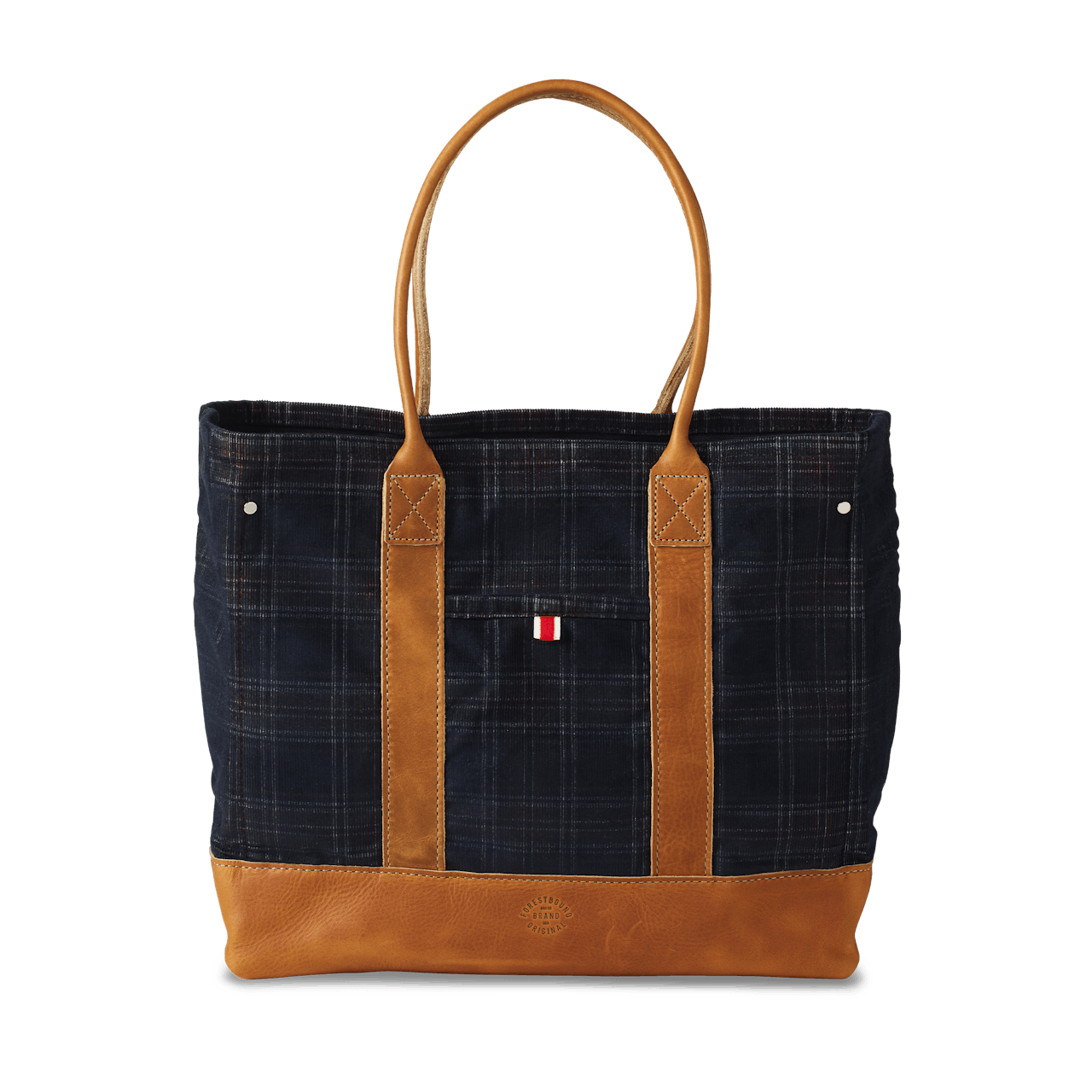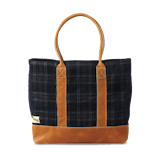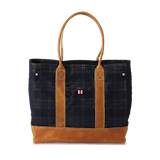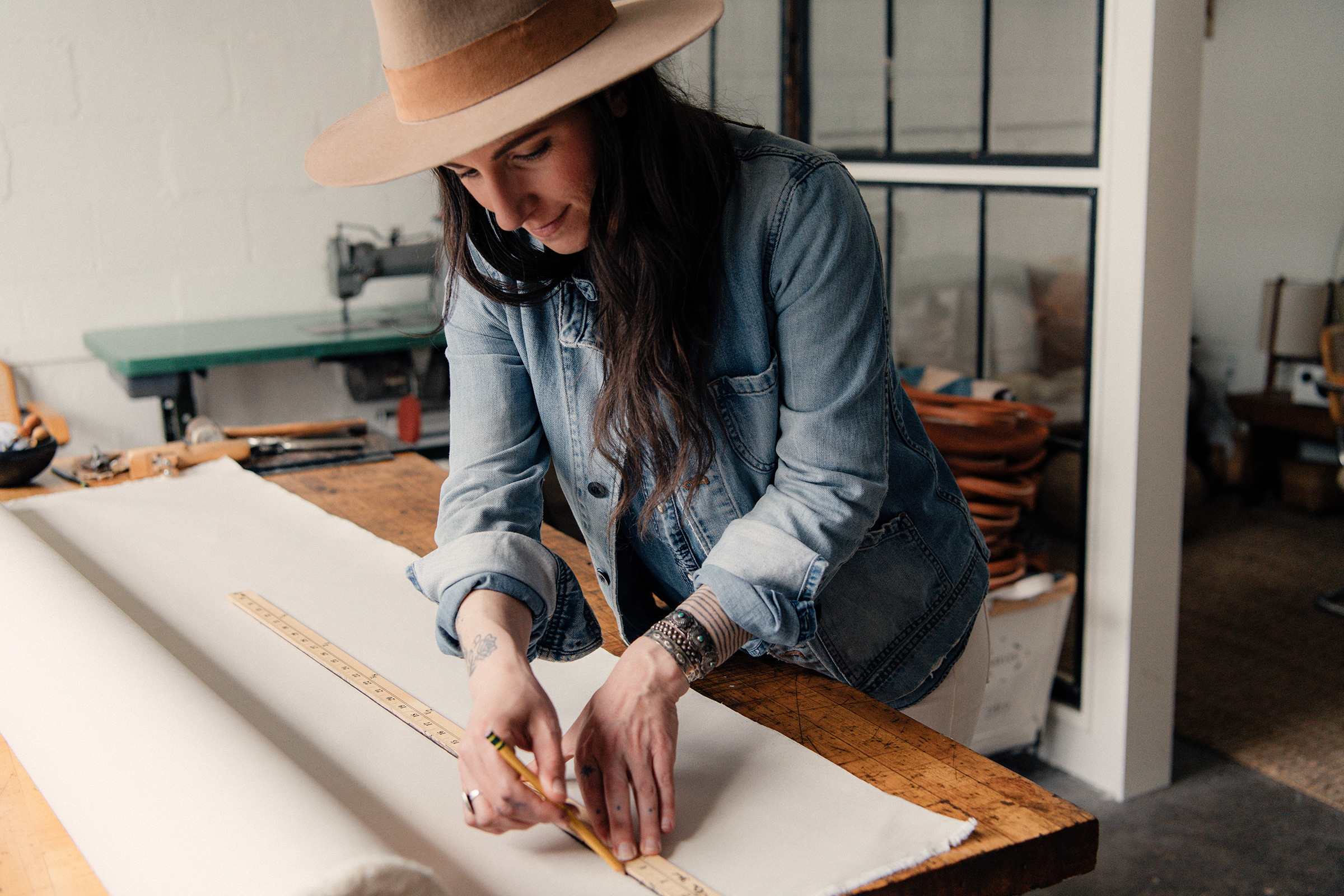
Running & Craftsmanship
A Conversation With Alice Saunders, Founder of Forestbound
These days it's rare to meet someone committed to doing things by hand. In a culture obsessed with speed and efficiency, we've lost touch with some of the art of craftsmanship that used to define human creativity. For Alice Saunders, the founder of Forestbound, the Boston-based purveyor of handcrafted bags, designing and building a piece from scratch is an art she's honed since she was a teen. Her attention to detail and dedication to the process is obvious, whether she's off scouring for historic textiles to re-use or hand tooling a leather strap
Alice is also a runner – she first met the team at one of our early Boston Marathon pop-ups - where we bonded over a love of mileage, doughnuts and classic New England style. We recently sat down to discuss her journey as an entrepreneur and runner.
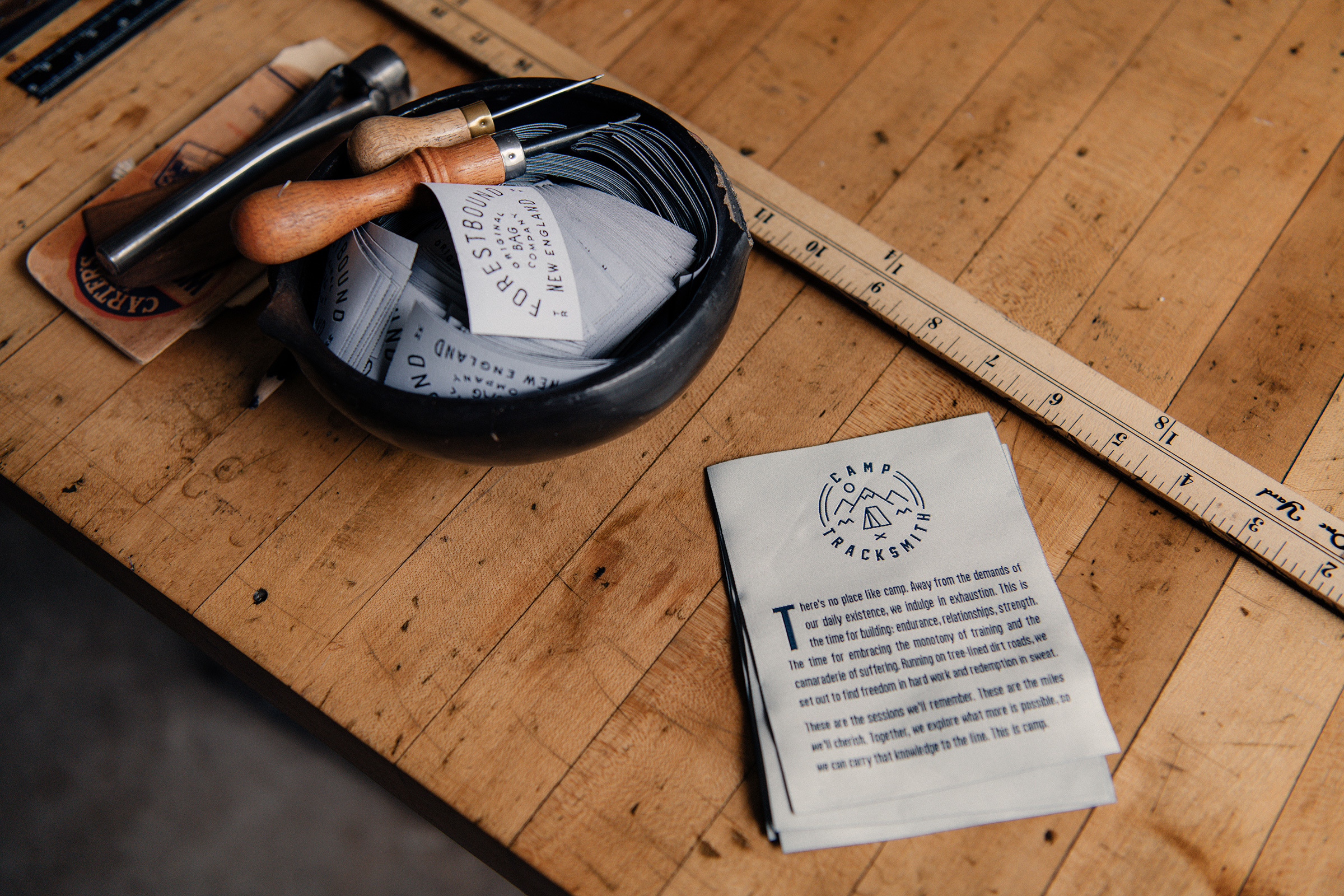
Tracksmith: What inspired you to start Forestbound?
Alice Saunders: I taught myself to sew when I was a teenager and have always gravitated towards textiles and military history, so when a WWII era duffle bag caught my eye at a flea market a decade ago it just clicked in my head that I could use this historic material to make a new bag that would be one of a kind and full of the type of history that I am passionate about. That was how I got started making bags, and from there I branched out into making designs with new canvas that were inspired by classic pieces that I uncovered at flea markets and barn sales.
TS: What's your design process like? How long does it take you to make a bag?
AS: My work is very much informed by the textiles that I source as well as old canvas and leather bags that I find at flea markets. The bags I make with reclaimed textiles are made without patterns since every one is different and the design & shape are dictated by the piece of canvas that I have in front of me and how I want to feature it. My designs that are made with new canvas are very much inspired by the timeless shapes and aesthetic of old tool bags and utilitarian tote bags that I've been finding and collecting for many years. It can take me anywhere from two hours to two weeks to make a bag. When it comes to reclaimed textiles, I only get one chance to cut up a piece of old canvas and repurpose it and sometimes I need to sit with the material for a few days or longer until I can really see the final product in my head.
TS: Where do you find the materials you work with?
AS: Mostly flea markets and barn sales all over New England. I've been out there searching for textiles for more than ten years so I also have a lot of antique dealers who will set aside canvas pieces for me. For the new textiles I use, I work with an American supplier of very high quality canvas. Making my bags 100% in the USA and using domestic textiles is a very high priority for me.
TS: You're a runner, how does the sport inform your work?
AS: Over the years running has really helped calm my brain and allowed me to weed out so many unnecessary or negative thought patterns. Those long marathon training runs really allow for a few hours of thought without the distraction of emails or social media and I cherish that time.
TS: How do you balance building Forestbound and training?
AS: One of the best parts about owning my own business is being able to have control over my schedule so even during the busiest times at Forestbound I can always find a way to arrange my day so a run can happen. For example, if I'm marathon training during the winter months I start my work days very very early so I can finish up at Forestbound and then start a training run by 3pm to take advantage of the daylight.
TS: You're a kind of 'cabin connoisseur,' where's been your favorite place to run in your travels?
AS: Our cabin in New Hampshire is set off an old decommissioned logging road that's about 1.5 miles long and full of rocky climbs & descents where the only vehicle you encounter is an occasional 4x4 enjoying the climbs & mud as much as we do. So this spot quickly became our favorite place to get in a short but challenging run.
TS: How does getting away to your cabin impact your work and creativity?
AS: Our off-grid cabin has been the best thing for my creativity over the past one and a half years. Our cabin is completely off the grid so no running water, no electricity, and no cell service. No cell service has been SO wonderful since it really makes us unplug and focus on the present moment, something that is so easy to forget about when you run your own business and the work day really never stops. Renovating an off grid property has also had an impact on my day to day here at Forestbound because we've had to come up with a lot of creative solutions at our cabin - ie. how to power the tools needed for renovation when you have no electricity, how to carry in all of our water and build a system so that we can wash dishes - so it has helped open my mind to new systems and methods that I can implement in my studio.
TS: Both Forestbound and Tracksmith draw inspiration from New England. What is it about this region that most informs your work?
AS: The timeless & utilitarian aesthetic of New England - from the old farms & pasture land to the rocky coast - plays a huge part in my work. I want to create designs that look like they could have been carried 60 years ago or in the present day. I also very much identify with the New England work ethic and the ability to grind it out and get things done even when there is four feet of snow outside.
Tracksmith Tote
A canvas and leather tote bag made by Forestbound for Tracksmith.
260
This item is out of stock. Please enter your email address and we will notify you when it is back.
Or


